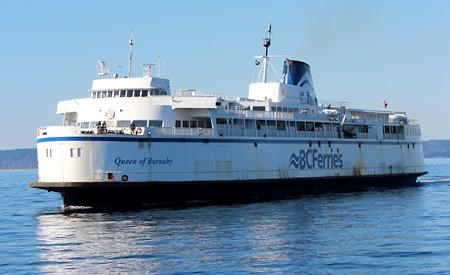After research, analysis and consultation with stakeholders and the public, Powell River Working Committee on Ferry Schedule Refinements posted its suggested schedule to the Powell River Regional Economic Development Society (PRREDS) website.
Scott Randolph, manager of Powell River economic development and chair of the working committee, said the process was precipitated in November 2013, when three local government leaders—Colin Palmer, Powell River Regional District chair, Clint Williams, Tla’amin (Sliammon) First Nation chief, and Dave Formosa, City of Powell River mayor—wrote a letter demanding that the BC Ferry Corporation work with the community on refining schedules so that they would have less of a negative impact on community organizations, businesses and residents. “The next step we took was to form a multi-sector working group,” Randolph said, “a committee to start developing schedule proposals of our own.”
The committee was made up of 12 members representing a wide variety of interest groups with good representation from Texada Island.
The committee surveyed the public from December 20 through to January 24. “We took the data that was generated out of that survey and used it to make changes to the schedules based on community need, but also keeping in mind cost efficiencies that the government was trying to achieve,” Randolph said. “Our bottom line was making sure that the community was taken care of no matter what.
“We received more than 200 responses,” he added. “There were strong responses from support groups, community organizations and sporting teams that often need to travel. We had excellent responses from the business community, especially those that are dependent on shipment of goods and services. Overall, we weren’t too surprised with what we saw in the results.”
Randolph pointed out that one of the most pressing needs identified, was in maintaining the opportunity for full day trips, especially concerning routes 17 (Little River to Westview) and 7 (Earl’s Cove to Saltery Bay). Maintaining connectivity with other routes was a big concern as well.
Where team sports are concerned, the need to find accommodation in many cases would possibly mean many teams would no longer be able to compete.
“We need to maintain the last Texada sailing of the day at 10:10 pm as well,” Randolph said. “More than 30 per cent of the workforce from Lafarge commutes from the Westview side to Texada on a daily basis. These are mostly trades and maintenance people. We’ve been advised that without that sailing they are in danger of losing those people. In fact, as a result of the first schedules being revised back in November 2013, they’ve already lost two trades people. It’s going to be difficult for them to recruit other people to replace them.”
BC Ferries has uploaded its own revised schedules to its website, with a call to the public to complete an online survey or respond to a random telephone survey with feedback. The revised committee schedule went live on the PRREDS website on Friday, February 14. “We’re asking [the public] to email us and to contact ferries as well and let them know if they prefer our schedule options over the ones that BC Ferries has provided,” Randolph said. “It’s really important for people to engage in this process and to provide feedback, because we’ll be sitting down with the ferry corporation on March 4 and we want to be able to show that there is wide community support for the options we’ve developed.”
Randolph pointed out that the government seems intent on forcing the cuts through. “We don’t think they are going to achieve the goals they think they will,” he said. “This is just a band-aid solution. It doesn’t address the operating cost issues that are affecting fares. Nor does it affect the profitability of the corporation. Operating costs and profitability are things that need to be looked at. They are going to have to deal with the $1.3 billion in debt hanging over the corporation. They are going to need to come up with some labour flexibility, and take a hard look at the crewing regulations that are set in place by Transport Canada. The whole business itself needs a top-down appraisal in regards to building a service that’s going to be operable in the future.”
In consideration of the measures taken to cut costs, he added, “The only part of the whole equation that’s really being affected by this is the customer. Show me any business that punishes its customer like this. It’s just not something that’s done in good conscience. We’re all doing our part to build affordability and sustainability into the solution, but so far, little is coming back from the other party.”



